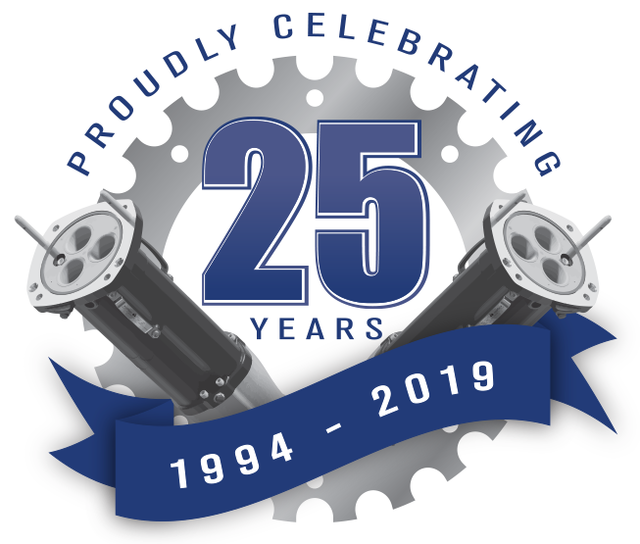REGIONAL FOCUS
Mining and the Amazon rainforest: can they coexist?
The Amazon Rainforest is one of the most contested spaces for mining in the world, and the impacts of both legal and illegal operations can be devastating for the environment and the indigenous groups that call it home. JP Casey looks at the state of mining in several countries across the Amazon, and asks whether anyone is doing it sustainably.


Covering over two million square miles, containing nearly 400 billion trees, and home to around 20 million indigenous people, the Amazon Rainforest is one of the world’s most unique areas of biological diversity and human life. The region is also home to considerable mineral reserves, notably copper and gold, making it an attractive prospect for eager mining companies.
Historically, the governments of South America have been careful to balance the demands of the mining industry with the needs of indigenous people and local flora and fauna, but the political climate is shifting across the continent. The left-wing government of Bolivia has been implicated in spreading wildfires to open up Amazon land for farming, and the right-wing Brazilian President Jair Bolsonaro is infamously supportive of mining and industrial expansion into the rainforest. The Amazon is being singed from both edges of the political spectrum.
As a result, it is unclear as to how these contrasting priorities – economic on the one hand and environmental on the other – can be balanced. While large-scale miners can be pressured into improving their operations to minimise damage to the Amazon and its indigenous inhabitants, rampant illegal mining and shifting political attitudes paint a grim picture for the future of the one of the world’s most sensitive ecosystems, where sustainability and productivity may ultimately be mutually exclusive.
More than half of the country’s coal mines are managed by pro-Russian separatist militia.Credit: DmyTo/Shutterstock.
More than half of the country’s coal mines are managed by pro-Russian separatist militia.
Credit: DmyTo/Shutterstock.
Taking land and felling trees
The environmental impacts of small-scale mining are clear; in its Rainforest Mafias report, published in September this year, Human Rights Watch identified a network of ranchers and farmers orchestrating operations encompassing “illegal deforestation, illegal occupation of federal land, and illegal gold mining” in the Brazilian state of Pará alone.
Christian Poirier, programme director of non-profit Amazon Watch, which works to protect the environment and people of the Amazon basin, went into greater detail: “There is the question of deforestation because [miners] essentially first cut down large tracts of forests and then sweep away all of the topsoil and run these through filters to try to get gold dust.
“That in itself pollutes water,” he continued. “It fills water with silt and drives away fish. Water is no longer suitable for drinking. These activities of course also drive away animals and game that indigenous peoples, who live where a lot of this mining takes place, are dependent on for food security.”
There has been similar environmental destruction in neighbouring Peru, with the government going so far as to declare a state of emergency in the department of Madre de Dios on the Brazilian border, following the loss of 22,931 acres of rainforest in 2018. While deforestation was reported to have fallen by 90% in response, the fact that over a thousand police and military troops were required to enforce pre-existing gold mining bans is testament to deeply entrenched and widespread nature of illegal mining in the area.
“From day one, Jair Bolsonaro has dismantled the social and environmental protections safeguards that keep the Amazon standing.”
Most ominously for the Brazilian Amazon, however, has been the government’s stance on many of these practices, which has been at best non-committal, and at worst openly supportive of expanded mining operations.
“From day one, Jair Bolsonaro has dismantled the social and environmental protections safeguards that keep the Amazon standing, from attacking the rights of indigenous peoples to their ancestral territories to dismantling [the] environmental policy, environmental safeguards, and even the very institutions that were established to uphold environmental law,” said Poirier.
The president’s provocative language has encouraged many of the country’s illegal miners to expand and intensify their operations, believing his election and subsequent rhetoric to have effectively legitimised a number of their operations; In September this year, 250 illegal miners blockaded a road, demanding a government official formally recognise their mines.

AusProof is celebrating 25 years of business in Australia in 2019.
Bolsonaro’s threats to indigenous people
“The explosion of illegal activity as encouraged by Bolsonaro is driving massive human rights abuses and threats against local communities,” said Poirier. “We expect to see more of this kind of open violence against the indigenous peoples … because these are no longer small, ramshackle operations; illegal miners in the Amazon, like land grabbers, like loggers, have transformed themselves into well-equipped brutal militias.”
One such example is the Munduruku people, who live along the Tapajos River in western Pará; the group has found itself under threat from illegal gold miners who have been emboldened by Bolsonaro’s rhetoric.
“Illegal miners in the Amazon, like land grabbers, like loggers, have transformed themselves into well-equipped brutal militias.”
The Havana Times reported a Bolsonaro speech in which he said that “[he] would put the armed forces there” to protect mining operations, steps which created what the magazine called a “social crisis”, where local people are forced to take sides in the conflict between resource exploitation and environmental protection. This crisis also aligns with many of the same social pressures described by police reports from the state of Mato Grosso along the Bolivian border, with “increased homicide rates, drug trafficking [and] prostitution” reported by authorities.
The Human Rights Watch also notes that many of the more extreme consequences of these social conflicts – notably violence and killings – are not adequately investigated by the Brazilian Government. The group notes that the Pastoral Land Commission in Brazil has recorded over 230 cases of fatal attacks between 2009 and 2019, involving more than 300 victims, but only nine of these incidents have led to trials.

AusProof is celebrating 25 years of business in Australia in 2019.
Indigenous issues spread across continent
Indigenous groups across the continent are suffering from similar stresses. Ecuador is home to the Shaur Arutam people, an indigenous group numbering around 6,000 in the country’s south-eastern Amazon-Andean corridor, whose lives have been threatened by escalating foreign mining interests.
“The Ecuadorian Government continues to concession territory of the Shuar Arutam People,” said Carlos Mazabanda, field coordinator at Amazon Watch. “The concessions went from affecting 13% of the territory in 2015 to 56% in 2019, without having fulfilled their right to free and informed prior consultation and consent.”
The state has opened up a total of 100,000 acres of land to Chinese company Explorcobres SA, a joint venture of state-owned miner Tongling and China’s national railway company, to explore for gold in the region, and despite local people being “emphatic in rejecting mining projects”, according to Mazabanda, the government shows little signs of bowing to increasing public pressure.
“The Ecuadorian Government continues to concession territory of the Shuar Arutam People.”
“The current government under the confrontational speech with the Shuar announced the cancellation of mining concessions, but this has not happened,” he said. “They continued with the communication strategy [of] making visible that mining is the future of the country's economy.”
Last year, the government announced plans to double down on its mining project as part of a plan to increase the sector’s contribution to national GDP from 1.5% in 2018 to 4% by 2021, despite the destruction of indigenous-owned lands and relocation of Shuar families that has plagued the country for years now, and created a conflict between the government’s legal authority and the Shuar people’s historic rights.

AusProof is celebrating 25 years of business in Australia in 2019.
Accountability and responsibility with Vale
Unlike illegal mining operations, large-scale miners have at least a notional responsibility to minimise the environmental and human costs of their operations, and Vale, the world’s largest producer of iron ore, has taken steps to minimise the potentially far-reaching environmental consequences of its operations in the rainforest.
“Vale's operations occupy less than 2% of the Flona (National Forest) in Carajás, which covers almost 400,000 hectares,” said Vale spokesperson Bruno Deiro. “A new conservation unit – Parque Nacional Campos Ferruginosos – was recently created. Located in the southeast of the state, the park will consist of almost 80,000 hectares of a rare type of ecosystem, including endangered and endemic species of flora and fauna, as well as important water springs for protection of water recourses of the region.”
“85% of Vale's iron ore production in Pará uses natural moisture, a dry process that does not use water nor generate tailings.”
The company has also responded to the collapse of one of its tailings dams in Brazil earlier this year, which led to the deaths of around 300 people and disastrous damage to the surrounding land, by aiming to reduce its reliance on tailings storage facilities.
“85% of Vale's iron ore production in Pará uses natural moisture, that is, it is a dry process that does not use water nor generate tailings,” said Deiro. “Over the next five years, Vale estimates to invest more than $2.5bn in processing facilities like that of natural moisture processing in its operations in Brazil.

AusProof is celebrating 25 years of business in Australia in 2019.
Balancing production efficiency and environmental safeguards
However, while Deiro stressed that Vale aims to “limit [its] activities to those that are strictly necessary", the vast scale of its operations means that balancing efficiency of production and environmental safeguards may be all but impossible in Brazil. By the company’s own estimations, its projects cover over one thousand square kilometres, with over half of this land dedicated to what Deiro calls “ore extraction, industrial production, processing, beneficiation and product transportation,” operations and processes with a significant environmental footprint.
The considerable mineral potential of the Amazon means that, in order for it to be adequately protected, world-leading environmental regulations would likely be required, and national governments would have to commit to ensuring miners, both international and small-scale, operate within these laws. However, Poirier is pessimistic about this political climate, which may well be contributing to the destruction of the Amazon, rather than protecting it.
“It's open season for these for these actors to aggressively expand their operations into what was once-protected forest.”
“These mining projects cause enormous environmental disruption and social impacts where they are established, in part because environmental governance is extremely lax and companies can get away with murder as it were,” he said.
“It's open season for these for these actors to aggressively expand their operations into what was once-protected forest, be them indigenous territories or otherwise.”

AusProof is celebrating 25 years of business in Australia in 2019.














